Copyright © Petroliam Nasional Berhad (PETRONAS) (20076-K).
All rights reserved.
-
Progressing Energy
- Overview
- Exploration
- Development & Production
- Malaysia Petroleum Management
- Refining
- Chemicals
- Carbon Management
- Marketing, Trading & Retail
- Gas Business
- Liquefied Natural Gas (LNG)
- Gas & Power
- Innovation Gateway @ PETRONAS (iG@P)
- PETRONAS Ventures
- Technical Solutions
- SEEd.Lab
- Talent Development & Education
- PING
- Lubricants
- Sustainability
- Investor Relations
- Our Stories

-
Sustainability
Our Approach
As a progressive energy and solutions partner, we strive to build trusted relationships with our stakeholders, and to create a positive impact on society and the environment.
- Company Message
- Approach
- Our Material Topics
- Memberships and Associations
- Sustainability Disclosure
Sustainability at PETRONAS

PETRONAS is committed to delivering energy for the growing needs of today and to developing solutions that will move us closer to a lower carbon future.
As part of that commitment, we aim to achieve net zero carbon emissions by 2050. We are intensifying our efforts to reduce emissions from our operations and products while at the same time investing in new lower carbon business growth opportunities.
We acknowledge that we have an important role to play in the energy transition, both in Malaysia and the other countries we operate in. In navigating this transition, we aim to get the balance right, ensuring that we are addressing our emissions, conserving and protecting nature and biodiversity as well as promoting a just transition that ensures equitable social and economic opportunities that can benefit more people.

Sustainable Value Creation
We deliver long-term value through robust financial performance, a resilient business portfolio, and sustainable growth while making a positive contribution to society and the environment. This is underpinned by our Statement of Purpose: “A progressive energy and solutions partner enriching lives for a sustainable future.”
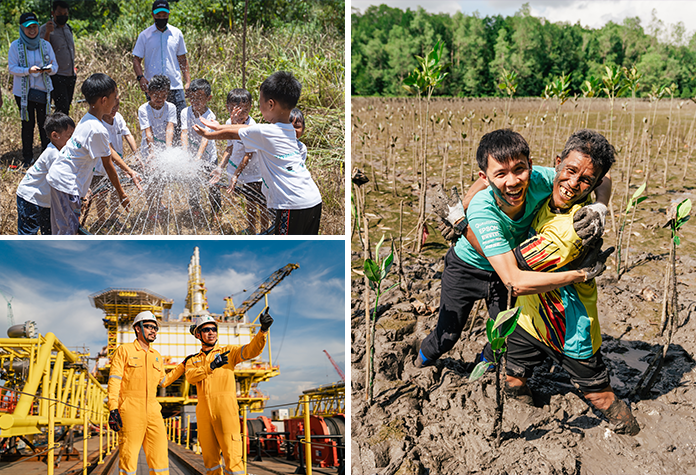
Sustainability Approach
At our core, we believe that sustainable business practices are essential for the long-term success of our company, our stakeholders, and the planet. Our actions are framed by our Sustainability Approach.
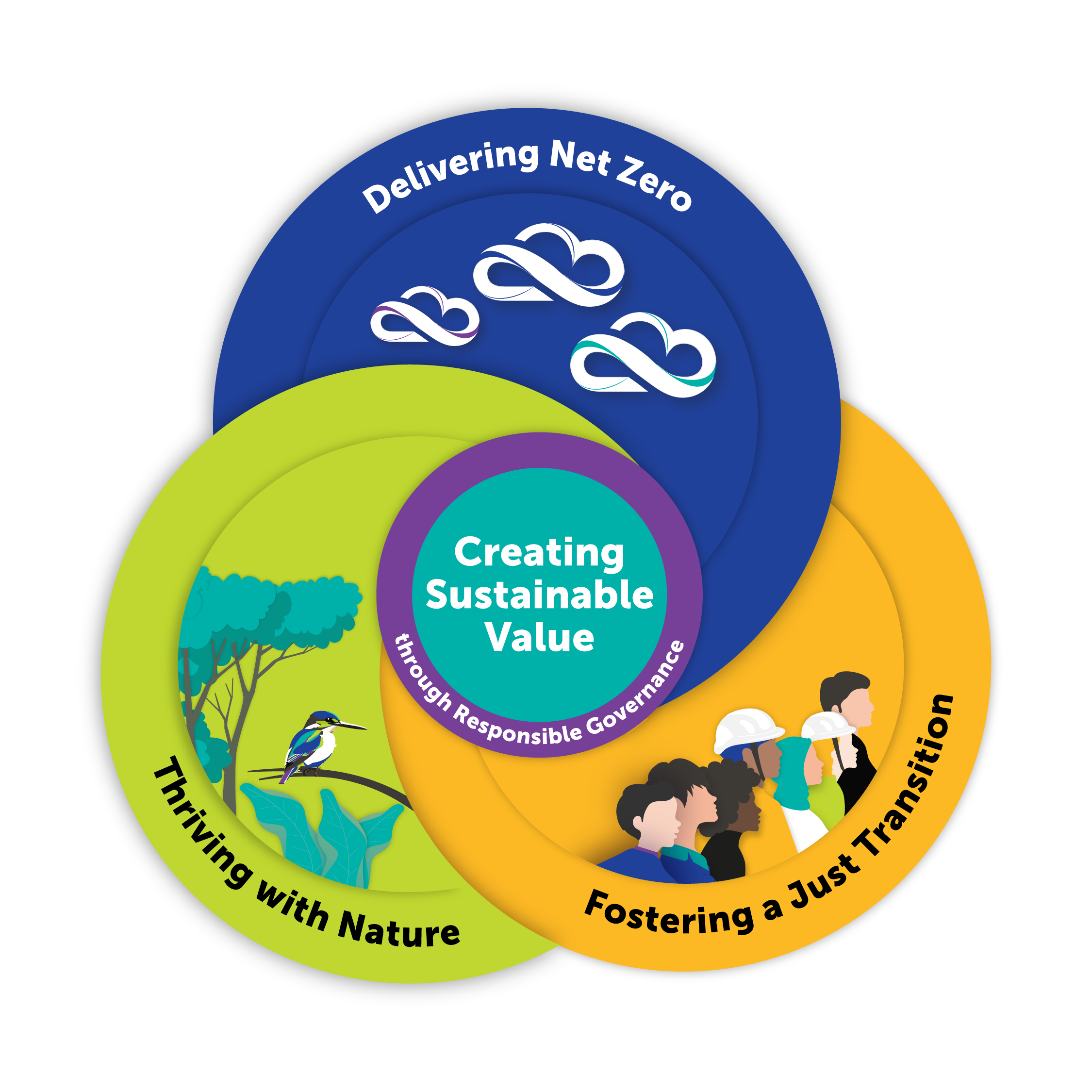
United Nations’ Sustainable Development Goals
Our activities aim to contribute towards the United Nations' Sustainable Development Goals (SDGs). PETRONAS embraces all 17 SDGs and prioritises that we believe we can contribute most effectively towards as part of our sustainability efforts. It is important to recognise that the goals are interconnected to one another.
7 prioritized Sustainable Development Goals
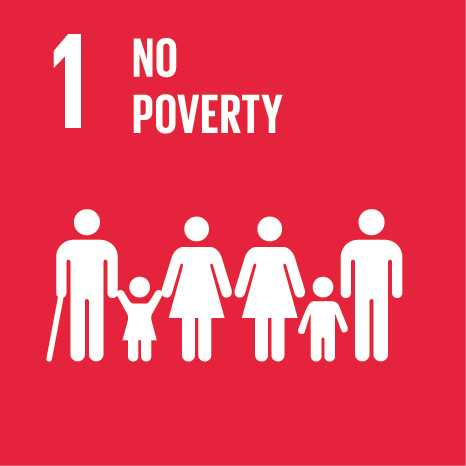
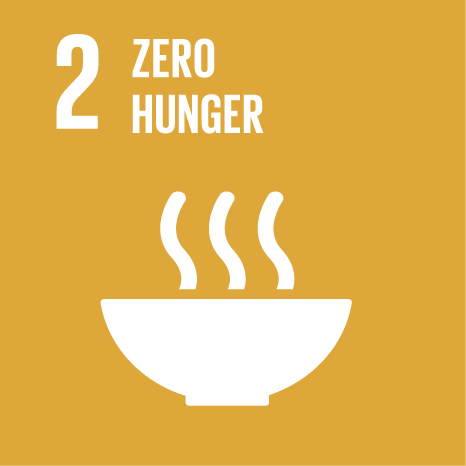
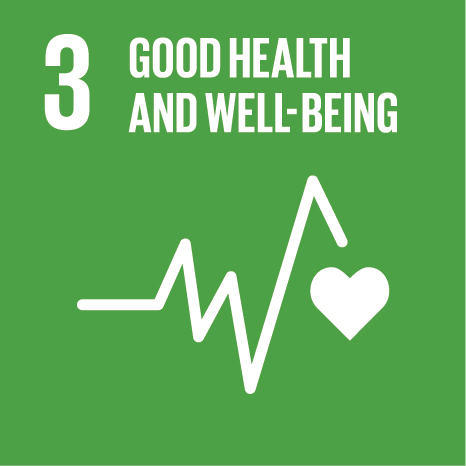
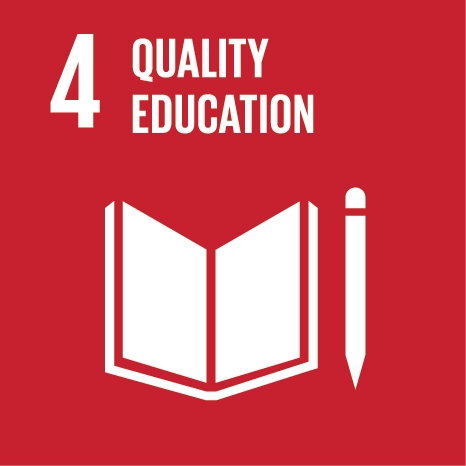
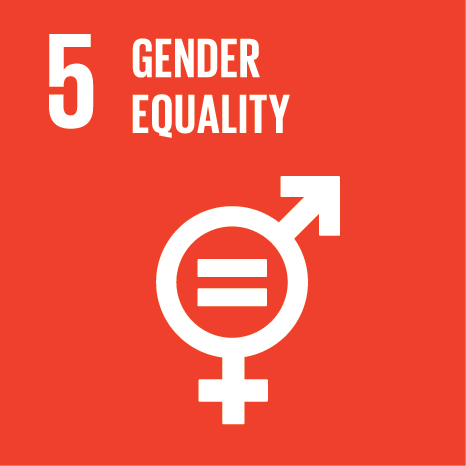
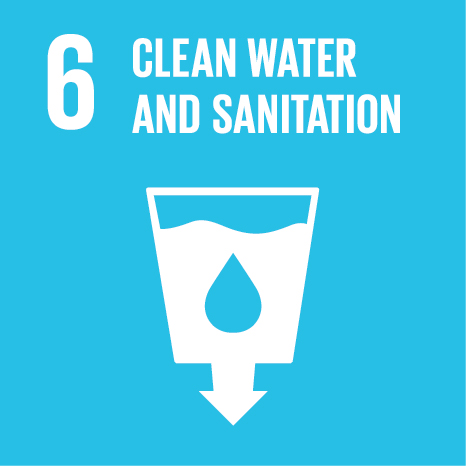
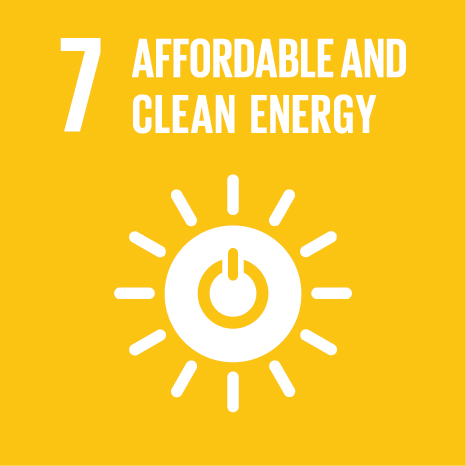
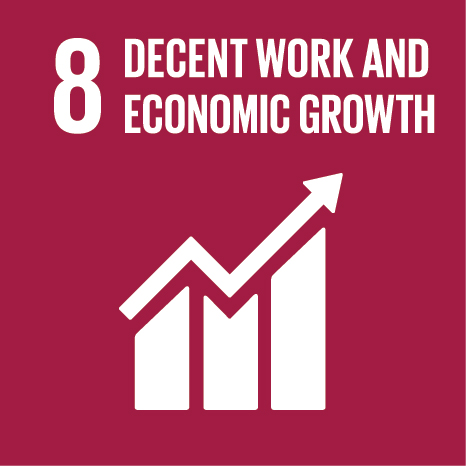
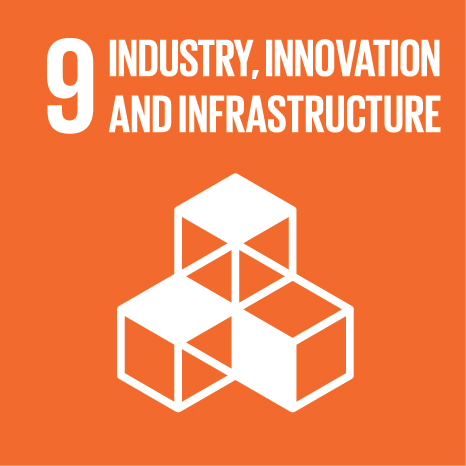
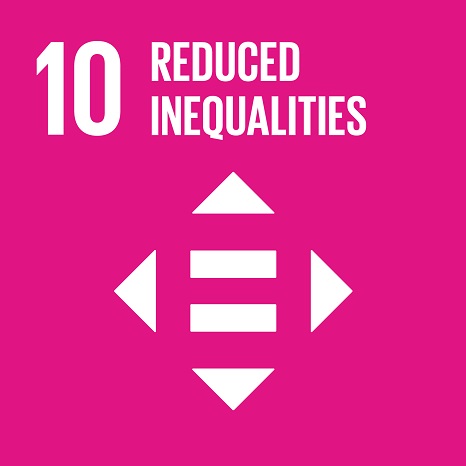
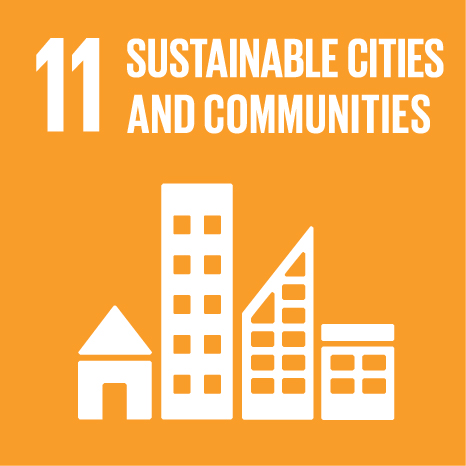
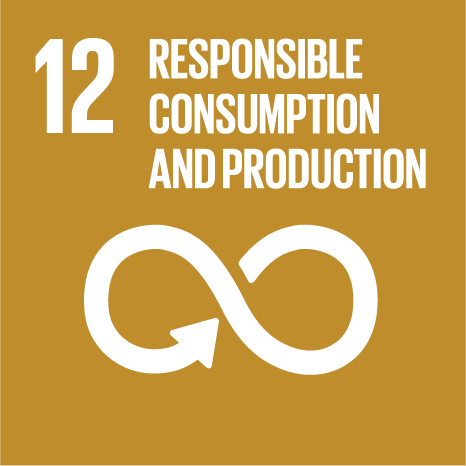
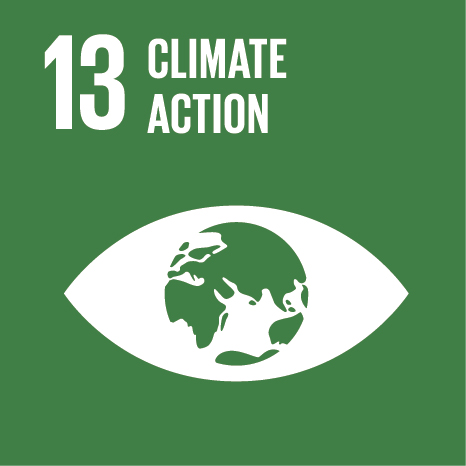
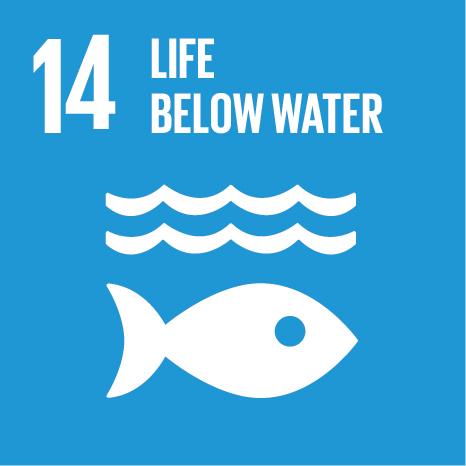
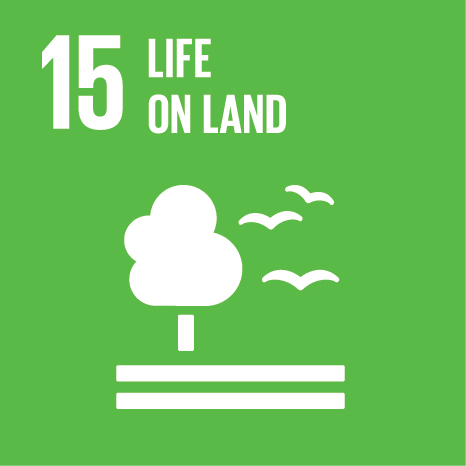
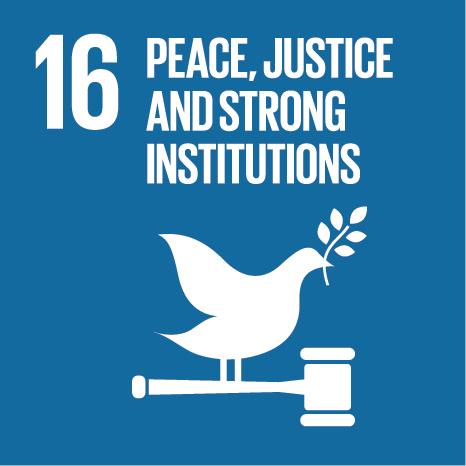
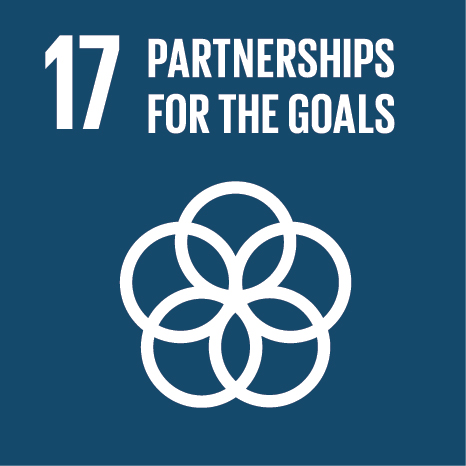
Materiality Assessment
Identifying and managing material topics allows us to focus on the issues that have the greatest impact on our long-term business performance and are most important to our stakeholders. This ensures our strategy remains aligned with both external expectations and operational priorities. Since 2022, we have applied a double materiality approach to assess the impacts of the material topics to the external environment (impact materiality) and the financial implications of the material topics to our business (financial materiality)
Impact Materiality
Evaluated from both positive and negative perspectives, covering actual and potential impacts from our own operations, and business relationships in the upstream and downstream value chain.
Financial Materiality
Evaluated in terms of negative consequences from reputational, financial or commercial risks associated with the material topics, as well as positive upside risks or opportunities.
Our Materiality Assessment Process
We continue to strengthen our materiality assessment process in line with the latest development in sustainability reporting. This includes new regulatory and disclosure requirements such as the European Sustainability Reporting Standards (ESRS) and Malaysia’s National Sustainability Reporting Framework (NSRF), which are aligned with IFRS Sustainability Disclosure Standards.
Our double materiality assessment process in 2024 included an overview of our value chain, and alignment of impact thresholds with risk thresholds, as per our Risk Quantification Guideline. We also considered the impact of our material topics and the associated risks and opportunity over the short-, medium-, and long-term.
Identification
We identified potential material topics by considering regulatory requirements on reporting and disclosure standards, stakeholder perspectives, peer-benchmarking and media insights.
Stakeholder Engagement
We gathered stakeholder views through external surveys and internal workshops. Guided by the PETRONAS Risk Quantification Guideline, these inputs were used to assess the impact and financial materiality of the various topics.
Prioritisation
Topics were further prioritised in response to Board and Executive Leadership Team insights, and recalibrated in consultation with Group strategy and risk management teams to align with our strategic priorities and risk profile.
Endorsement
The materiality assessment results were endorsed by the PETRONAS Sustainability Committee and approved as per company internal governance.
Our Material Topics
Our materiality assessment identifies 16 key topics that are material to PETRONAS, guiding the management of sustainability efforts. This assessment highlights the significance of perceived impacts and trends compared to the previous year.
Legend: Material More Material Most Material ▲ Increase In Impact = No Changes In Impact ▼ Decrease In ImpactSustainability Approach
Material Topics
Descriptions
Impact Materiality
Financial Materiality
Significance
Trend Compared
to 2023Significance
Trend Compared
to 2023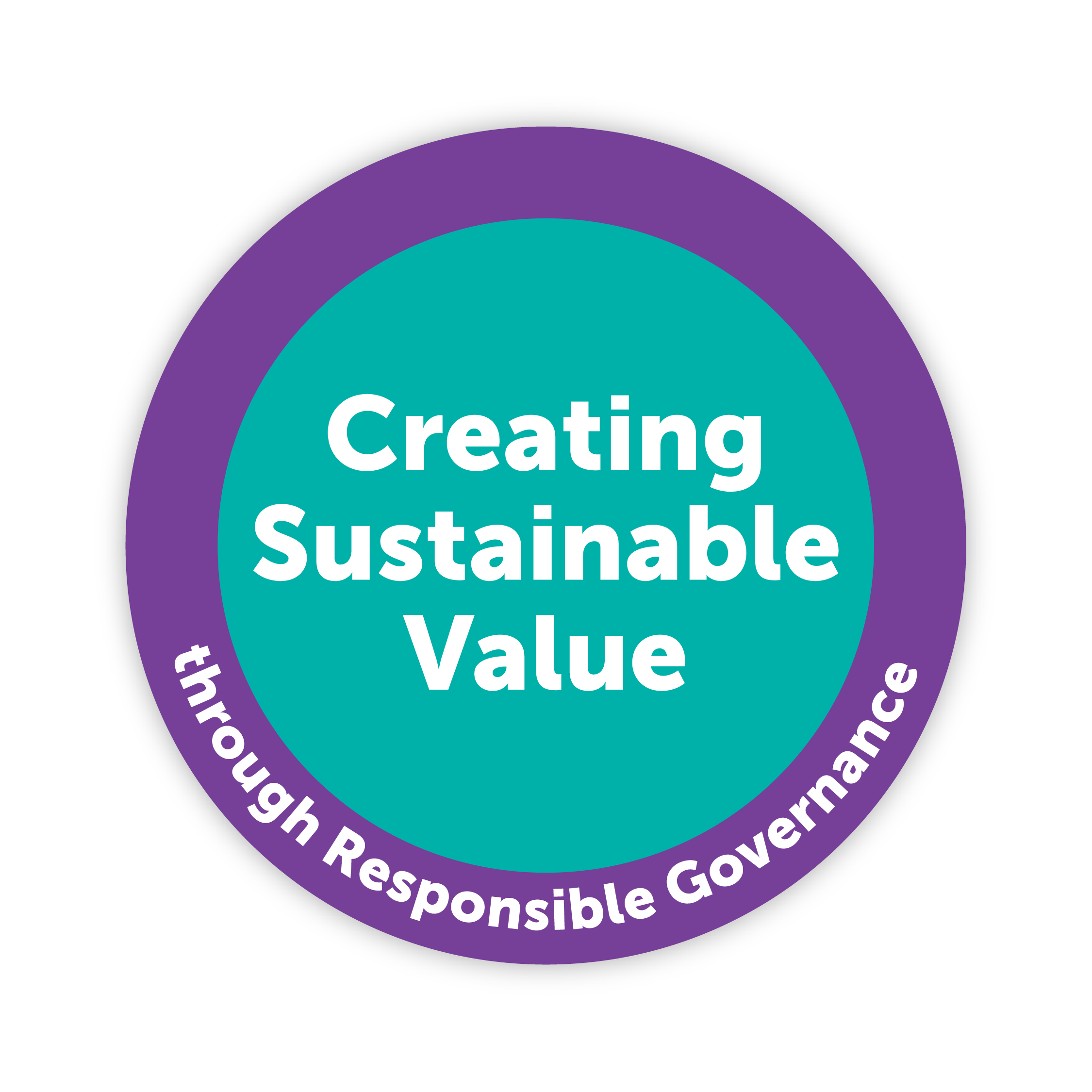
Creating Sustainable Value through Responsible Governance
CG
Corporate Governance
Corporate Governance is crucial for ensuring accountability, performance and transparency within PETRONAS. Strong governance can enhance business resilience and attract investors, fostering trust among stakeholders and promoting long-term sustainability.
▲ = CDP
Cyber Security and Data Protection
Cyber Security and Data Protection is vital as PETRONAS increasingly employs digital solutions. A strong cyber security framework and investment in advanced protective measures ensure business continuity and safeguard stakeholder information, maintaining trust and operational integrity, in an environment where cyberattacks pose greater security threats.
= ▲ EC
Economic Contribution
Our ability to drive long-term business growth goes hand-in-hand with the prosperity of the markets and communities in which we operate. We contribute to development that benefits multiple segments of society through the generation of economic value from our products and services, capital payouts, payments to government, compensation to employees and vendors, as well as financial contribution towards social and environmental causes.
▲ ▲ EI
Ethics and Integrity
Ethics and Integrity are fundamental to maintaining PETRONAS’ reputation and enabling responsible business practices. Fostering strong ethical practices can enhance stakeholder relationships, operational integrity, and a culture of high ethical standards and trust.
▲ = IT
Innovation and Technology
Innovation and Technology drive PETRONAS’ ability to adapt to industry shifts and deliver sustainable energy solutions. Investing in technologies presents an opportunity to position PETRONAS as a leader in the energy transition, with positive impacts including enhanced operational efficiency and sustainable practice.
= ▲ LCT
Lower-Carbon and Energy Transition Business
Lower-Carbon and Energy Transition Business presents opportunities for PETRONAS in renewables and lower-carbon energy solutions. Our PETRONAS Energy Transition Strategy directs our efforts to invest in promising new energy value chain reduce emissions and better meet stakeholder expectations while contributing towards global climate goals in a financially prudent manner.
= ▼ SM
Safety Management
Safety Management is essential for ensuring the safety of our employees, contractors and communities. Implementing strong safety practices can mitigate risks and improve operational efficiency.
= = 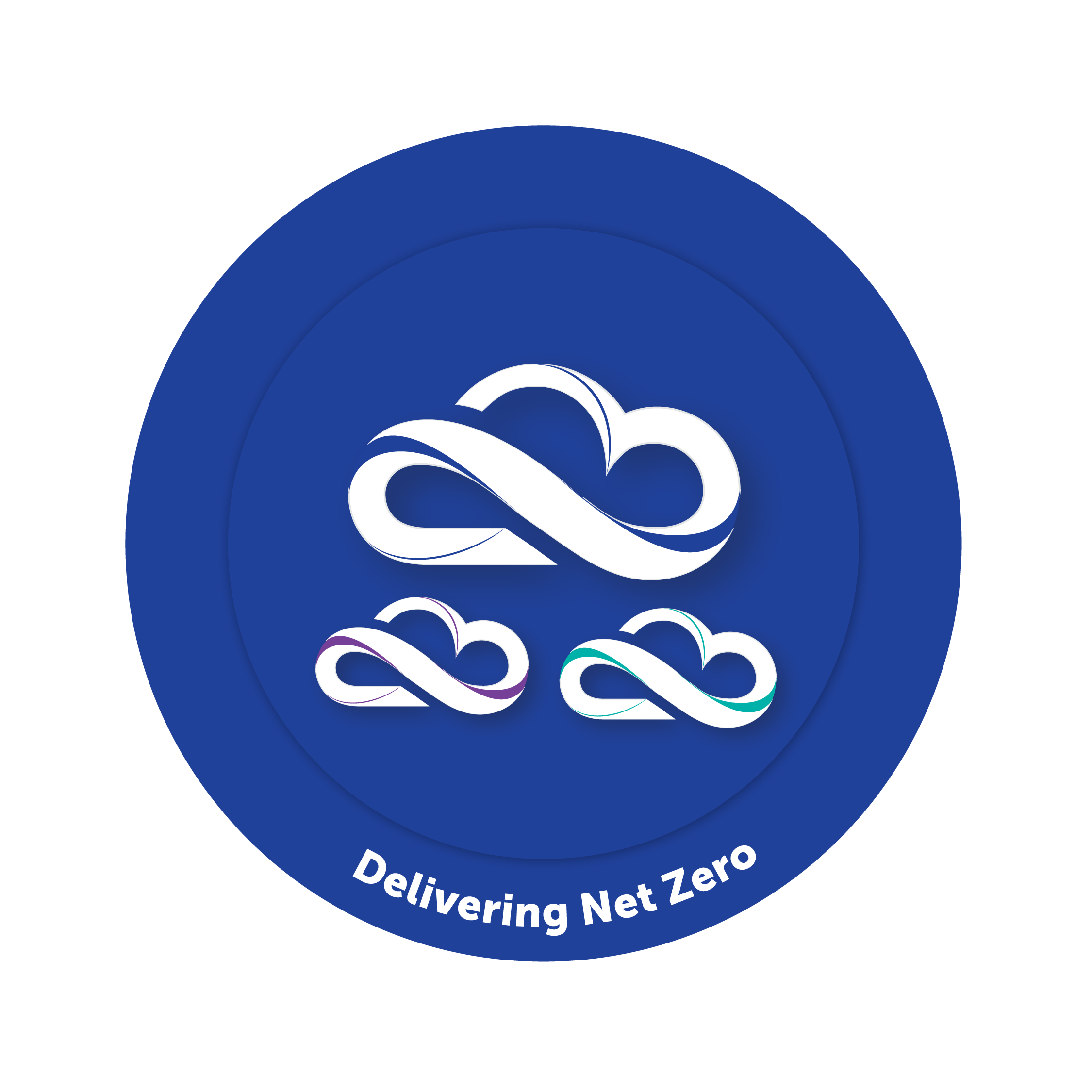
Delivering Net Zero
CC
Climate Change
Climate change presents both challenges and opportunities for PETRONAS. This include potential physical risks to PETRONAS’ assets and value chain, as well as transition risks that encompass regulatory and market challenges associated with climate change. Proactive climate risk management offers the opportunity to protect assets, enhance business continuity, ensure resilience and build stakeholder confidence. However, failing to manage these risks may pose significant threats to assets in the form of extreme weather events reducing demand for our products and disrupt operations, potentially leading to financial losses, regulatory non-compliance and reputational damage.
▼ ▼ GHG
Greenhouse Gas Emissions
Managing our Greenhouse Gas (GHG) Emissions is critical for PETRONAS to achieve our commitment to net zero carbon emissions by 2050. Our emissions reduction efforts are carried out through four key abatement levers to attain our emissions reduction targets. Failure to address our emissions could lead to financial losses and reputational damage.
= = 
Thriving with Nature
CE
Circular Economy
Circular Economy practices promote resource efficiency and waste reduction. Creating value from waste presents new business opportunities enhances resource efficiency. It also enhances regulatory compliance and strengthens stakeholder trust.
▼ ▼ EM
Environmental Management
Our Environmental Management is guided by responsible resource utilisation, pollution prevention and sustainable practices. Our internal standards steer our operations in managing air emissions, wastewater, waste, water use and oil spill prevention, ensuring regulatory compliance and protecting natural resources.
= = NB
Nature and Biodiversity
With climate change being a significant driver of biodiversity loss and the risk of irreversible damage to ecosystems, PETRONAS is committed to deepening our understanding of both our impacts on and dependencies upon Nature and Biodiversity. Our ability to address our impacts responsibly is essential to maintaining our social licence to operate, avoiding fines, operational disruptions, financial losses, and ensuring long-term business resilience.
= ▼ 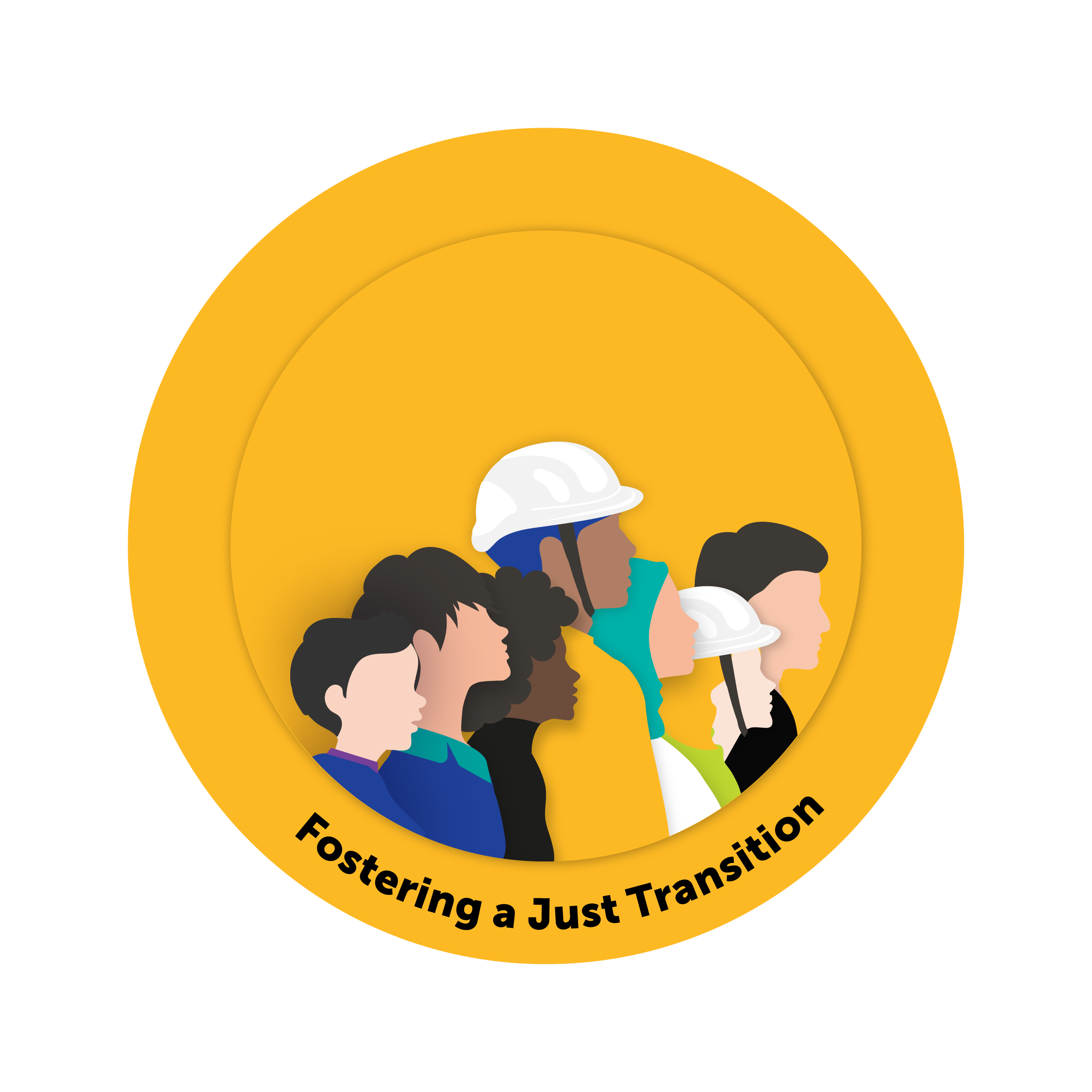
Fostering a Just Transition
EAR
Employee Attraction, Retention and Development
Employee Attraction, Retention and Development is vital for cultivating an agile, skilled and motivated workforce. Investing in employee development helps build a future-ready workforce, driving business success and ensuring continuity in delivering our strategy. Retaining and developing existing talent can strengthen business sustainability and resilience in the long run.
▲ = HW
Health and Well-being
The Health and Well-being of employees is important to PETRONAS to ensure a productive and healthy working environment. Proactive measures to foster a sound work culture negate the risks of employees feeling undervalued, experiencing low morale or facing reduced productivity.
= = HR
Human Rights
Respecting Human Rights across our operations and supply chains is fundamental to ethical and sustainable business practices at PETRONAS. Upholding human rights practices fosters trust, strengthens stakeholder relationships and promotes fair labour practices. Failure to address human rights risks can lead to human rights abuses, legal consequences, financial losses and reputational harm, ultimately impacting business resilience and long-term success.
▲ = SC
Sustainable Supply Chain
Sustainable Supply Chain management promotes ethical sourcing while minimising environmental and social impacts across the value chain. It ensures that products are safe, sustainable and responsibly managed. These initiatives also drive cost efficiencies, foster innovation in sustainable materials and processes, and strengthen brand reputation, ultimately creating value for both the business and our stakeholders.
= ▼ Our Material Topics
Our materiality assessment identifies 16 key topics that are material to PETRONAS, guiding the management of sustainability efforts. This assessment highlights the significance of perceived impacts and trends compared to the previous year.
Material Topics & Descriptions

Creating Sustainable Value through Responsible Governance
CG
Corporate Governance
Corporate Governance is crucial for ensuring accountability, performance and transparency within PETRONAS. Strong governance can enhance business resilience and attract investors, fostering trust among stakeholders and promoting long-term sustainability.
CDP
Cyber Security and Data Protection
Cyber Security and Data Protection is vital as PETRONAS increasingly employs digital solutions. A strong cyber security framework and investment in advanced protective measures ensure business continuity and safeguard stakeholder information, maintaining trust and operational integrity, in an environment where cyberattacks pose greater security threats.
EC
Economic Contribution
Our ability to drive long-term business growth goes hand-in-hand with the prosperity of the markets and communities in which we operate. We contribute to development that benefits multiple segments of society through the generation of economic value from our products and services, capital payouts, payments to government, compensation to employees and vendors, as well as financial contribution towards social and environmental causes.
EI
Ethics and Integrity
Ethics and Integrity are fundamental to maintaining PETRONAS’ reputation and enabling responsible business practices. Fostering strong ethical practices can enhance stakeholder relationships, operational integrity, and a culture of high ethical standards and trust.
IT
Innovation and Technology
Innovation and Technology drive PETRONAS’ ability to adapt to industry shifts and deliver sustainable energy solutions. Investing in technologies presents an opportunity to position PETRONAS as a leader in the energy transition, with positive impacts including enhanced operational efficiency and sustainable practice.
LCT
Lower-Carbon and Energy Transition Business
Lower-Carbon and Energy Transition Business presents opportunities for PETRONAS in renewables and lower-carbon energy solutions. Our PETRONAS Energy Transition Strategy directs our efforts to invest in promising new energy value chain reduce emissions and better meet stakeholder expectations while contributing towards global climate goals in a financially prudent manner.
SM
Safety Management
Safety Management is essential for ensuring the safety of our employees, contractors and communities. Implementing strong safety practices can mitigate risks and improve operational efficiency.

Delivering Net Zero
CC
Climate Change
Climate change presents both challenges and opportunities for PETRONAS. This include potential physical risks to PETRONAS’ assets and value chain, as well as transition risks that encompass regulatory and market challenges associated with climate change. Proactive climate risk management offers the opportunity to protect assets, enhance business continuity, ensure resilience and build stakeholder confidence. However, failing to manage these risks may pose significant threats to assets in the form of extreme weather events reducing demand for our products and disrupt operations, potentially leading to financial losses, regulatory non-compliance and reputational damage.
GHG
Greenhouse Gas Emissions
Managing our Greenhouse Gas (GHG) Emissions is critical for PETRONAS to achieve our commitment to net zero carbon emissions by 2050. Our emissions reduction efforts are carried out through four key abatement levers to attain our emissions reduction targets. Failure to address our emissions could lead to financial losses and reputational damage.

Thriving with Nature
CE
Circular Economy
Circular Economy practices promote resource efficiency and waste reduction. Creating value from waste presents new business opportunities enhances resource efficiency. It also enhances regulatory compliance and strengthens stakeholder trust.
EM
Environmental Management
Our Environmental Management is guided by responsible resource utilisation, pollution prevention and sustainable practices. Our internal standards steer our operations in managing air emissions, wastewater, waste, water use and oil spill prevention, ensuring regulatory compliance and protecting natural resources.
NB
Nature and Biodiversity
With climate change being a significant driver of biodiversity loss and the risk of irreversible damage to ecosystems, PETRONAS is committed to deepening our understanding of both our impacts on and dependencies upon Nature and Biodiversity. Our ability to address our impacts responsibly is essential to maintaining our social licence to operate, avoiding fines, operational disruptions, financial losses, and ensuring long-term business resilience.

Fostering a Just Transition
EAR
Employee Attraction, Retention and Development
Employee Attraction, Retention and Development is vital for cultivating an agile, skilled and motivated workforce. Investing in employee development helps build a future-ready workforce, driving business success and ensuring continuity in delivering our strategy. Retaining and developing existing talent can strengthen business sustainability and resilience in the long run.
HW
Health and Well-being
The Health and Well-being of employees is important to PETRONAS to ensure a productive and healthy working environment. Proactive measures to foster a sound work culture negate the risks of employees feeling undervalued, experiencing low morale or facing reduced productivity.
HR
Human Rights
Respecting Human Rights across our operations and supply chains is fundamental to ethical and sustainable business practices at PETRONAS. Upholding human rights practices fosters trust, strengthens stakeholder relationships and promotes fair labour practices. Failure to address human rights risks can lead to human rights abuses, legal consequences, financial losses and reputational harm, ultimately impacting business resilience and long-term success.
SC
Sustainable Supply Chain
Sustainable Supply Chain management promotes ethical sourcing while minimising environmental and social impacts across the value chain. It ensures that products are safe, sustainable and responsibly managed. These initiatives also drive cost efficiencies, foster innovation in sustainable materials and processes, and strengthen brand reputation, ultimately creating value for both the business and our stakeholders.
Impact Materiality & Financial Materiality
Legend: Material More Material Most Material ▲ Increase In Impact = No Changes In Impact ▼ Decrease In Impact
Scroll to Discover More
Material Topics
Impact Materiality
Financial Materiality
Significance
Trend Compared
to 2023Significance
Trend Compared
to 2023
Creating Sustainable Value through Responsible Governance
CG
Corporate Governance
▲ = CDP
Cyber Security and Data Protection
= ▲ EC
Economic Contribution
▲ ▲ EI
Ethics and Integrity
▲ = IT
Innovation and Technology
= ▲ LCT
Lower-Carbon and Energy Transition Business
= ▼ SM
Safety Management
= = 
Delivering Net Zero
CC
Climate Change
▼ ▼ GHG
Greenhouse Gas Emissions
= = 
Thriving with Nature
CE
Circular Economy
▼ ▼ EM
Environmental Management
= = NB
Nature and Biodiversity
= ▼ 
Fostering a Just Transition
EAR
Employee Attraction, Retention and Development
▲ = HW
Health and Well-being
= = HR
Human Rights
▲ = SC
Sustainable Supply Chain
= ▼ Materiality Assessment
Committed to sustainable practices, we champion purposeful and informed value creation that adapts to stakeholder needs and environmental changes beyond routine checklists. For 2023, we conducted a revalidation exercise for our material topics. We applied a dual perspective, combining an inside-out assessment with an outside-in evaluation. This approach is pivotal in informing a holistic and integrated strategy to effectively manage both risks and opportunities that lie at the centre of our operations.
For 2023, the revalidation exercise based on 15 material topics in 2022 resulted in a total of 16 material topics. The impact to our business and the importance to our stakeholders were mapped according to the priority of the issues.

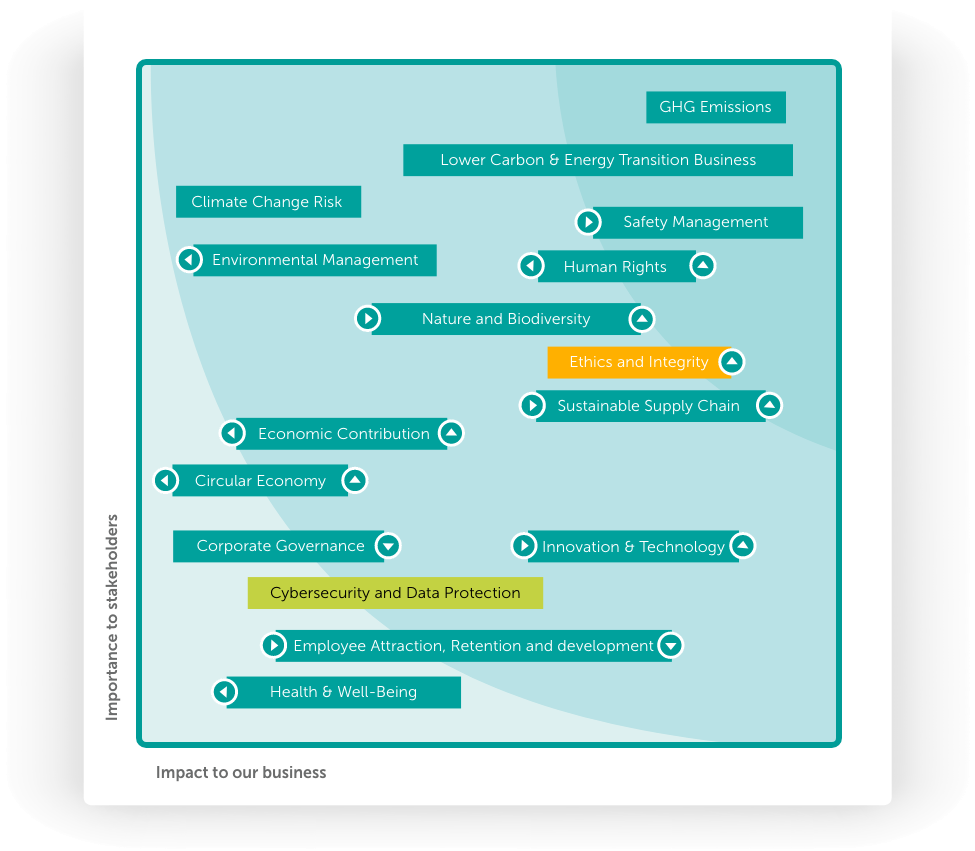
Our Double Materiality
As the demand for transparent and comprehensive reporting continues to grow, the double materiality concept served as one of the methods to communicate on our sustainability performance with the broader concept of interconnectedness of financial and sustainability matters.
Further details can be obtained from our PIR2023 Report here.
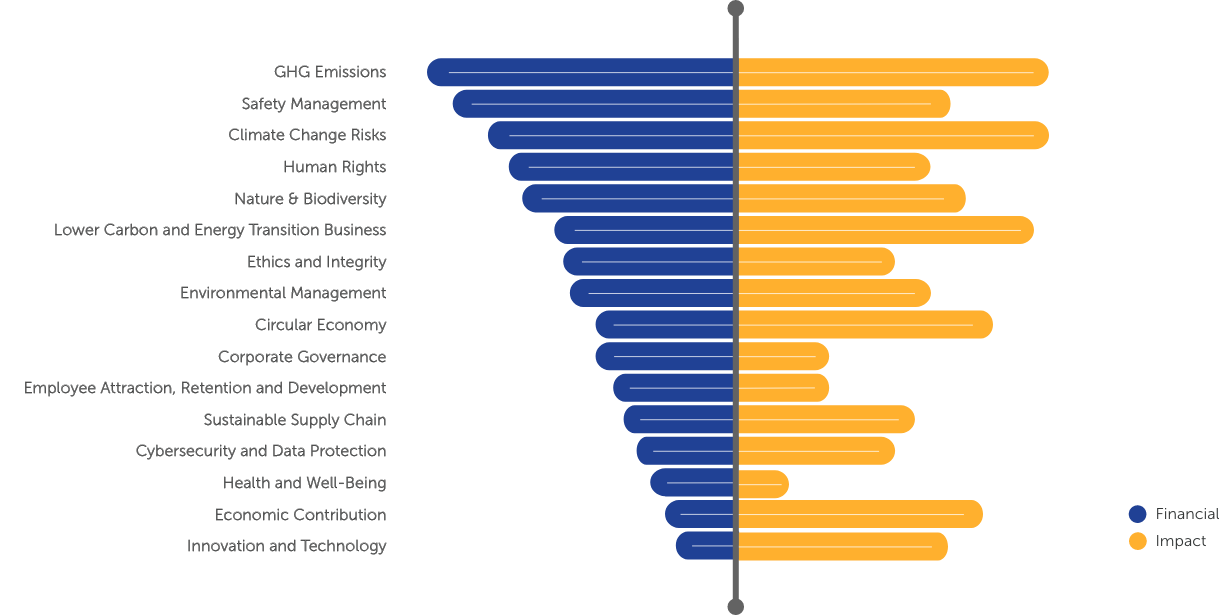
Material Topics
Description
Greenhouse Gas (GHG) Emissions
We consistently enhance our measurement and quantification methods to effectively address GHG emissions from our operations, thereby reducing the impact on the environment. We also intensify collaboration with actors within the ecosystem to gain a deeper comprehension of energy utilisation within our company and across our value chain.
Climate Change Risks
We acknowledge the challenges posed due to climate change, both in terms of its physical impacts and the transition to a lower-carbon economy. We are actively exploring measures to adapt and strengthen resilience, while also implementing governance systems in line with the Task Force on Climate-related Financial Disclosures recommendations to effectively identify and manage climate-related risks and opportunities.
Environmental Management
Environmental management is essential in addressing our impact on the physical environment. The environmental effects of our operations, emphasising sustainable resource management, emissions reduction, responsible waste and water practices and responsible asset decommissioning.
Nature and Biodiversity
As climate and nature issues are intertwined, it is important that our GHG emissions abatement and growth of cleaner energy solutions are in unison with the conservation and protection of nature and biodiversity. The PETRONAS Nature and Biodiversity position guides our plans on Nature and Biodiversity Centre of Excellence (CoE) and plan to assess our readiness to align with TNFD recommendations
Safety Management
Prioritising safe operations, means providing a secure and productive working environment for our employees and contractors, free of incidents and accidents.
Human Rights
We are committed to respecting human rights in all our business activities and relationships. Issues such as forced labour, human trafficking, modern slavery, fair working conditions and non-discrimination are monitored to ensure that we are operating responsibly wherever we are. In April 2024, we launched our Human Rights Policy formalising and thereby, strengthening our commitment to human rights.
Employee Attraction, Retention and Development
Investing in skilled talent is vital for long-term business resilience in a rapidly changing energy landscape and ensuring a just transition. We aim to attract and retain top talent through flexible work arrangements, opportunities for growth and market-based compensation based on capability, experience and performance. We are committed to fostering an inclusive workplace where everyone is treated equally.
Health and Well-Being
Ensuring the safety and well-being of all employees and contractors is paramount to us, extending our commitment to fostering a culture of health and safety within our workforce and the broader community. Through comprehensive risk assessments, robust controls and a variety of health and wellness programmes, we proactively address overall well-being of our employees.
Corporate Governance
We uphold our commitment to maintaining the highest standards of corporate governance, recognising its crucial role in enhancing business resilience and fostering long-term growth. Ensuring the highest level of governance across structures, policies and strategies relating to sustainability remains one of our top priorities.
Ethics and Integrity
We stand resolute against any form of corruption or unethical conduct. This commitment extends throughout the entire value chain, encompassing employees, partners, suppliers, contractors and all intermediaries. We actively promote responsible business practices and strict adherence to established standards and guidelines. The PETRONAS Anti-Bribery and Corruption Policy and the PETRONAS Code of Conduct and Business Ethics (CoBE) serve as our guiding principles, and sets the bar for ethical business conduct.
Lower Carbon and Energy Transition Business
Our Net Zero Carbon Emissions pathway informs our lower carbon and energy transition activities and ventures. This includes prioritising natural gas and exploring opportunities in renewable energy, hydrogen, green mobility, specialty chemicals and biofuels. Our aim is to strike a balance between energy security, affordability and sustainability, leveraging on the latest policies, goals, measurement tools and technologies to facilitate this transition.
Economic Contribution
Our commitment lies in fostering both business growth and community prosperity. We achieve this by creating economic value through our offerings, paying taxes and wages and providing opportunities for society. During crises, we extend assistance through financial aid, volunteer work and efforts. Our tax practices adhere strictly to local regulations, ensuring transparency and responsibility.
Sustainable Supply Chain
We pay close attention to our overall supply chain management, product stewardship and procurement as these mitigate risks that impact the environment, society and economy. This ensures the sustainability and safety of our products throughout the entire life cycle. To improve supply chain resilience, we continuously strengthen our efforts to nurture and support local suppliers where possible and applicable. We also share global work practices with regional and local entities to enrich the local economy.
Innovation and Technology
We acknowledge the importance of innovation and technology in delivering our commitment. We promote an innovative culture that encourages creative thinking in both product design and operations. This boosts our competitive edge and enhances our brand reputation. Through advanced technologies and digital innovations, we develop new business processes that elevate customer and stakeholder experiences. Our approach integrates innovation and technology across all operations and services to fuel our business growth and expand our offerings.
Cybersecurity and Data Protection
Cybersecurity and data protection play pivotal roles in safeguarding organisations against a myriad of cyber threats and ensuring the integrity and confidentiality of sensitive information.
Circular Economy
Our goal is to minimise the environmental footprint of our product by minimising waste and cutting down material usage. We are committed to combating plastic pollution through recycling and reusing, fostering innovation and reducing waste. Embracing the circular economy model, we aim to establish a closed-loop system where waste serves as input for new processes. Our focus is on building a sustainable future, preserving natural resources and lowering our carbon footprint while generating value.
Process
2022 – Full Materiality Assessment
2023 – Revalidation of Materiality Assessment
Identification
Data-driven tool to include new sources:
- Existing and emerging regulations
- Media
- Sustainability Accounting Standards Board (SASB) Standards
We studied regulatory changes, media reports and the Sustainability Accounting Standards Board (SASB) to helped to identify material sustainability topic. SASB was particularly valuable as it aligns with upcoming International Sustainability Standards Board (ISSB).
Stakeholder Engagement
In-depth feedback from external stakeholders, including:
- Investors, banks, and rating agencies
- Reputation Strength Index survey
We obtained detailed feedback from a variety of external stakeholders, including investors, financial institutions and rating agencies to assess the impact of material topics on our business conducted throughout the year provided valuable insights, guiding our materiality assessment. Stakeholders’ concerns, queries and responses were documented as inputs for the assessment.
Prioritisation
Priorisation criteria include:
- Alignment with strategy and focus areas
- Discussions at Board and Executive Leadership Team meetings
- Alignment with risk elements in Corporate Risk Profile
Data-driven tool to assess and prioritise financial materiality and impact materiality.
We prioritised strategies and focus areas through initiatives, commitments and discussions at the Executive Leadership Team and Board levels. Material topics were ranked based on alignment with risk elements in PETRONAS Corporate Risk Profile
Endorsement and ApprovalEndorsed by Sustainability Committee and approved by Vice President and Chief Sustainability Officer
We submitted revalidation results to the Sustainability Committee, formerly known as the Sustainability Council, for approval by the Vice President and Chief Sustainability Officer.
Materiality Assessment
In 2022, we undertook a rigorous reassessment and revalidation of our material topics to ensure that they remain relevant and integral to our sustainability strategy and reporting. We use a non-financial materiality assessment to inform our sustainability priorities and disclosures that identifies topics that are most important to our stakeholders and have the most impact on our business.

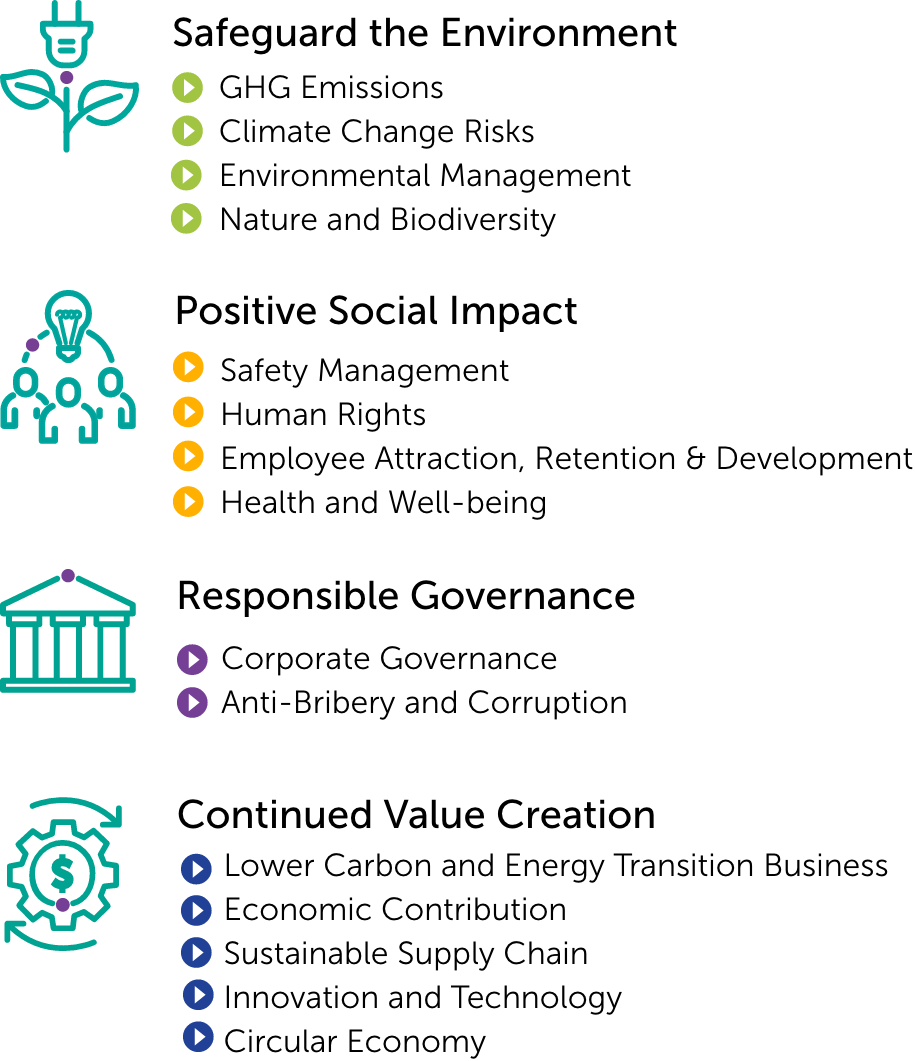
In 2022, our materiality matrix has seen a few movements of topics, signaling changes in the importance to our stakeholders and the impact to our business.
Further details can be obtained through our Integrated Report here.

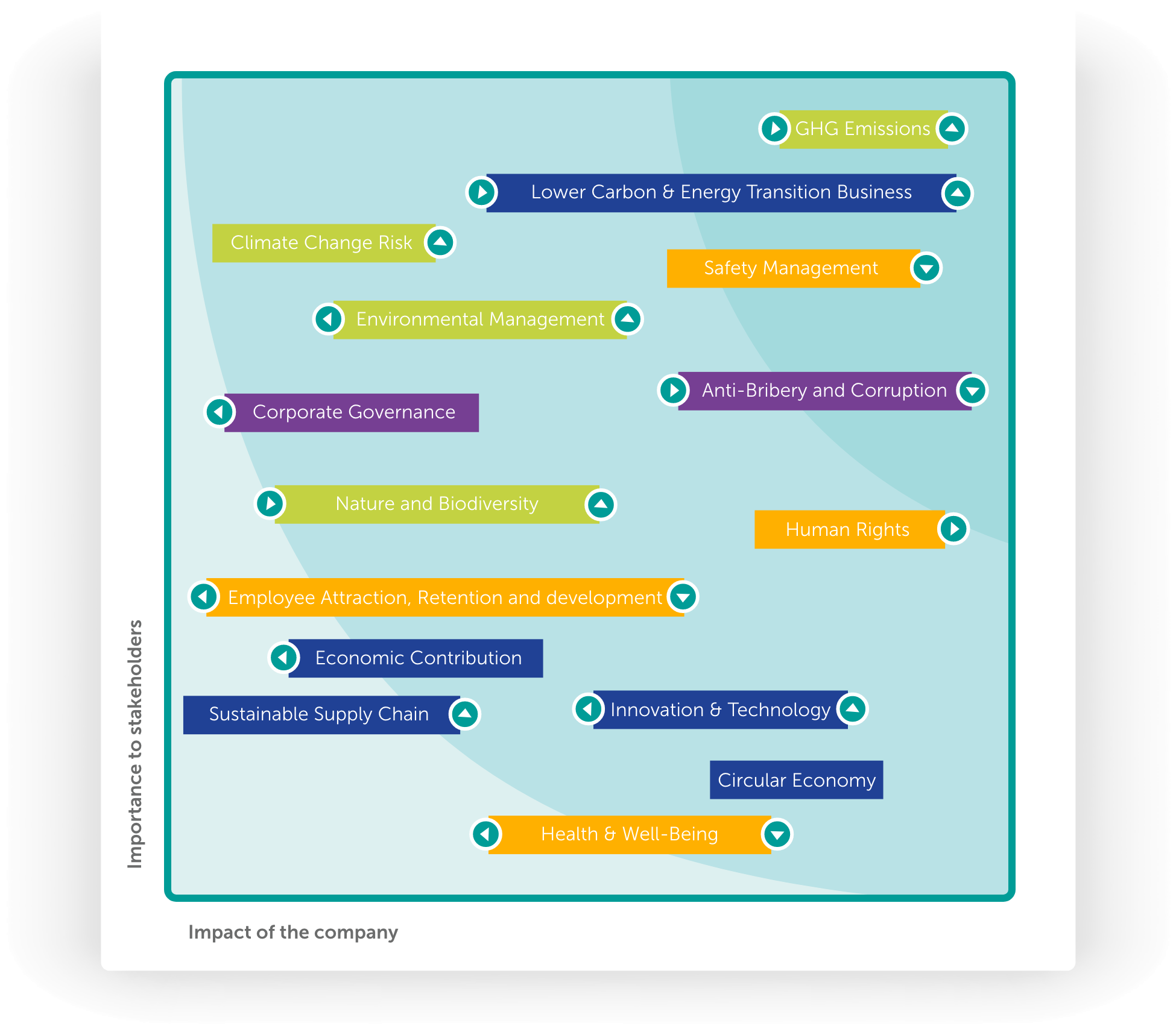
Double Materiality
Through our double materiality approach, we consider both the financial and sustainability impact of our material topics. This approach allows us to understand the financial implications of sustainability risks and opportunities and how they may impact our long-term financial performance.
Further details can be obtained from our PIR2022 Report here.
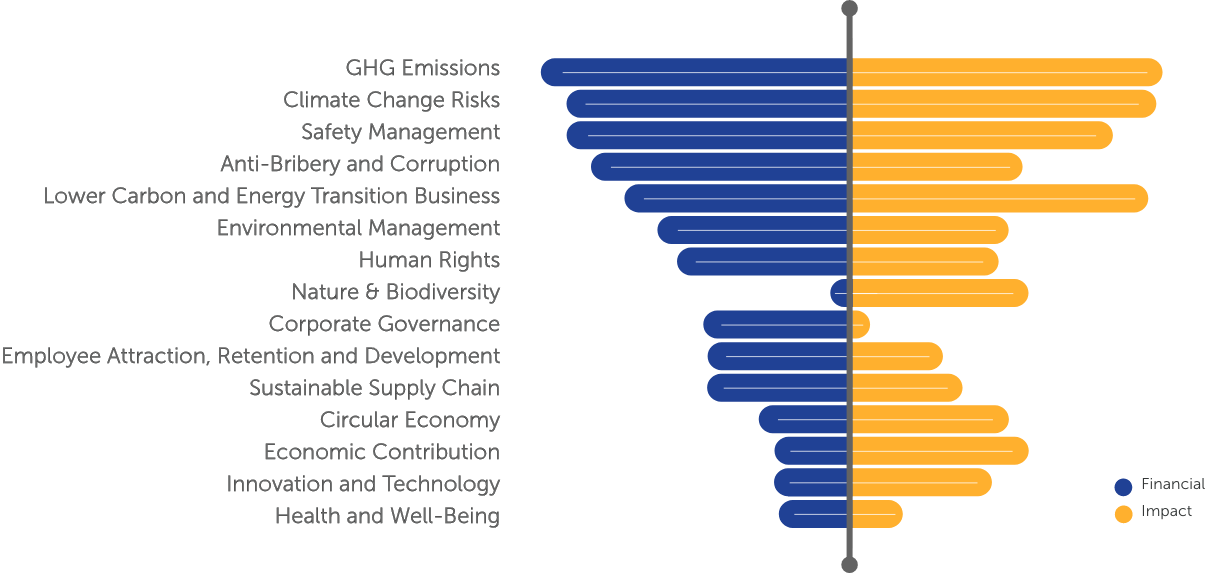
Material Topics
Description
Greenhouse Gas (GHG) Emissions
Our approach to realising our Net Zero Carbon Emissions by 2050 Pathway is guided by our four main decarbonisation levers – zero routine flaring and venting, energy efficiency, electrification and carbon capture and storage. Additionally, we are continuously improving measurement quantification to mitigate methane emissions from our operations to limit the impact of Greenhouse Gas (GHG) emissions over a more immediate period. We are focusing on gaining a clearer understanding of energy consumption within the company and throughout our value chain to support our emissions mitigation efforts. We also pursue collaborative initiatives with industry peers.
Climate Change Risks
Our aim is to strengthen PETRONAS’ resilience to physical and transition climate change risks, while seizing the opportunities presented in the transition to a lower carbon economy. We are actively looking into adaptation and resilience measures, as well as the relevant governance systems to manage climate-related risks and opportunities, as per the recommendations of the Task Force on Climate-related Financial Disclosures (TCFD).
Environmental Management
Protecting and conserving the environment will minimise the impact of our operations on the environment. This will also ensure the long-term health of our business and the communities around us. We identify and assess the environmental impact of our operations and focus on managing our resources sustainably. This includes (but is not limited to) decreasing the impact of emissions, creating responsible waste and water management strategies, preventing spills, and decommissioning our assets in a safe and sustainable manner.
Nature and Biodiversity
We must conserve and protect nature and biodiversity in order to deliver on our business goals and Net Zero Carbon Emissions by 2050 Pathway. As climate change is significantly driving biodiversity loss and may cause irreversible damage, we aim to further understand our relationship and dependency on nature and biodiversity in order to improve our impact on them.
Safety Management
Managing the safety of our people continues to remain a top priority as this ensures we protect our employees and contractors from any harm or injuries. In striving towards operational excellence, we conduct proactive risk management practices across our business and operations to provide the safest possible work conditions while ensuring our assets are continuously well maintained.
Human Rights
We aim to respect human rights across our suppliers, contractors, partners and communities where we operate with the establishment and implementation of a Human Rights Policy and supporting practices. We periodically review our policies and practices to ensure we have a robust approach to addressing human rights issues on forced labour, human trafficking, modern slavery, fair working conditions and non-discrimination. We have also started to embed human rights due diligence practices in systems and functions across our value chain, including remediation actions.
Employee Attraction, Retention and Development
Given the dynamically evolving energy landscape, we require future-ready talent with the right knowledge and skills to realise our strategy and drive business resilience over the long term. Investment in high-performing talents is crucial, especially in an environment of increasing competition for skills. Our aim is to continuously attract and retain the best talent by providing flexible work arrangements, creating opportunities to foster individual potential and implementing fair and equitable compensation that is consistent with a rewards-based performance. We also strive to create a fair and inclusive workplace by supporting equal treatment of all employees regardless of gender, age, cultural background, skills, race and religion.
Health and Well-Being
We place great emphasis on protecting all employees and contractors from work-related hazards and promoting good health and well-being among our workforce and the wider community. It is imperative to create a safe and conducive work culture, as our employees’ health and well-being directly impact our long-term performance. We conduct risk assessments, introduce adequate controls and implement a wide range of health and wellness initiatives that help address the physical and mental health of our employees and their families.
Corporate Governance
It is important that we practice and uphold the highest standards in corporate governance, a key factor in determining business resilience and long-term growth. This also covers our strategies and roadmap in delivering our Net Zero Carbon Emissions by 2050 Pathway.
Anti-Bribery and Corruption
We believe that creating a strong foundation based on ethics and integrity will drive shared and equitable values among stakeholders. We need to protect our operations and business from any form of corruption and unethical behaviour. Throughout the value chain, we strongly encourage ethical and responsible business practices and compliance with standards and guidelines among employees, business partners, suppliers, contractors and other intermediaries. We do this by upholding PETRONAS’ Anti-Bribery and Corruption Policy and the PETRONAS Code of Conduct and Business Ethics.
Lower Carbon and Energy Transition Business
In combatting the climate challenge, we continue to strengthen our efforts in lower carbon and energy transition business as this allows us to step out beyond our core and develop new businesses to realise our Net Zero Carbon Emissions by 2050 Pathway. This includes our focus on natural gas as a fuel with lower carbon intensity than other more polluting fossil fuels; and other business growth opportunities such as renewable energy, hydrogen, green mobility, specialty chemicals and biofuels. Our efforts are channelled towards achieving a balance of energy security, affordability and sustainability, taking into consideration the latest policies, goals, accounting instruments and technologies that facilitate the energy transition.
Economic Contribution
Our ability to drive long-term business growth goes hand-in-hand with the prosperity of the markets and communities in which we operate. Our goal is to contribute to economic development that benefits all segments of society by generating economic value through our products and services, servicing capital payouts, and paying wages and taxes while generating social, commercial and working opportunities for citizens. We also provide assistance especially in times of crisis through funds, volunteering efforts and in-kind products or services. We strive to ensure that PETRONAS is responsible and transparent in tax practices in our obligation to comply with applicable tax regulations.
Sustainable Supply Chain
We pay close attention to our overall supply chain management, product stewardship and procurement as this mitigates risks that impact the environment, society and economy. To improve supply chain resilience, we continuously strengthen our efforts to nurture and support local suppliers where possible and applicable. We also share global work practices with regional and local entities to support the local economy.
Innovation and Technology
We embrace innovation through the implementation of internal frameworks and measures that promote the practice of challenging the status quo in product design and operations to generate new solutions that enhance our competitive advantage and brand reputation. This includes developing and using advanced technologies and digital innovations to generate new business processes, including improving customer and other stakeholders' experiences. In terms of approach, we leverage innovation and technology across all operations and services to accelerate our business growth and offerings.
Circular Economy
Our long-term ambition is to minimise or eliminate the negative environmental impact of a product by addressing waste and reducing materials consumption. We also aim to decrease plastic pollution by engaging in recycling and reusing, as this also creates opportunities for innovation and lower waste generation. The circular economy model encourages the creation of closed-loop systems where waste from one process becomes an input for another. Our aspiration is to work towards a low-waste future, steward natural resources and minimise our carbon footprint while creating value.
Our Materiality Assessment Process
Process
2021 – Full Materiality Assessment
2022 – Revalidation of Materiality Assessment
Identification
In-house desktop analysis that includes a range of internal and external sources:
- Reporting frameworks and standards
- Internal strategies, policies, processes and documentation
- Relevant legislations in the countries we operate
- National industry-specific trends and survey outcomes
- ESG ratings and benchmarks
- Peer benchmarking
Data-driven tool to include new sources:
- Existing and emerging regulations
- Media
- Sustainability Accounting Standards Board (SASB) Standards
Stakeholder Engagement
Validation process via interviews and surveys with stakeholders:
- Employee representatives including union leaders
- Government and regulatory bodies
- Embassies, high commissions and foreign representatives
- Communities and customers
- Media
- Investors, credit rating agencies and financial institutions
- Industry partners, alliances and business councils
- Non-government organisations (NGOs) and special interest groups
- Learning institutions
In-depth feedback from external stakeholders, including:
- Investors, banks, and rating agencies
- Reputation Strength Index survey
Prioritisation
We prioritised the identified topics based on two key areas – their importance to stakeholders and their impact on our business. Prioritisation criteria include:
- Occurrence in grievances
- Topics highlighted by investors and rating agencies’ assessments
- Discussions at Board and Executive Leadership Team meetings
- Alignment with risk elements in Corporate Risk Profile
Priorisation criteria include:
- Alignment with strategy and focus areas
- Discussions at Board and Executive Leadership Team meetings
- Alignment with risk elements in Corporate Risk Profile
Data-driven tool to assess and prioritise financial materiality and impact materiality.
Endorsement and ApprovalEndorsed by Sustainability Committee and approved by Vice President and Chief Sustainability Officer
Memberships & Associations
We actively participate in professional associations, events and memberships with the aim to strengthen our sustainability efforts. Through these various platforms, we are able to exchange knowledge on best practices to drive the sustainability agenda within and outside of our operations. This is part of our commitment to Malaysia's nation-building efforts and to create positive impact across industries and society.
Through our network of international and national organisations and industry partners we can collectively enhance and generate knowledge, share best practices, and support decarbonisation initiatives that create value for the company and our stakeholders.
PETRONAS is a member of:
PETRONAS supports the aims of the organisations below with the intent to strengthen our overall sustainability governance, raise awareness, deliver education programmes and define our positions on various climate and sustainability-related aspects that are aligned with our NCZE 2050 Pathway:
PETRONAS continues to lead and be visible in advocating our sustainability-related values through national and international platforms, initiatives and organisations, such as:
 ×
×Industry Associations / Events / Engagement
CAN is a peer-to-peer network of CEOs and Board members focused on sustainability advocacy, capacity building, action and performance. CAN includes 62 leading businesses, representing more than 20 business sectors in Malaysia.
President and Group CEO of PETRONAS, Tan Sri Tengku Muhammad Taufik chaired CAN during the period 2021-2022.
Find out more here.
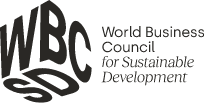 ×
×Industry Associations / Events / Engagement
World Business Council for Sustainable Development (WBCSD) is a CEO-led community of over 200 of the world’s leading businesses working collectively to accelerate transformations needed for a net-zero, nature positive, and more equitable future.
PETRONAS joined WBCSD in 2020 to inform sustainability strategy and positioning and to broaden global outreach.
PETRONAS is also a member of Business Council for Sustainable Development (BCSD) Malaysia.
PETRONAS is represented in WBCSD through our President & Group CEO, Tan Sri Tengku Muhammad Taufik as the Council member, and involving other Executive Leadership Team members through direct participation in WBCSD's CFO Network and The Business Commission to Tackle Inequality, in addition to working level participation across the breadth of WBCSD' s programmatic activities.Find out more here.
 ×
×Industry Associations / Events / Engagement
The private-sector arm of the Asia-Pacific Economic Cooperation (APEC)’s comprising high level officials from 21 member countries, dedicated to advising leaders and other APEC officials on issues of business interest.
President and Group CEO of PETRONAS, Tan Sri Tengku Muhammad Taufik is a member of ABAC, which plays a role in presenting recommendations to APEC Leaders in an annual dialogue and advises APEC officials on business-sector priorities and concerns.
As a co-chair to the Sustainability Working Group, PETRONAS President and Group CEO proposed recommendations on building small and medium-enterprises (SMEs) resilience in low carbon economy, which among others, were included in the 2022 Annual Report from APEC Business Advisory Council (ABAC) to APEC Economic Leaders.Find out more here.
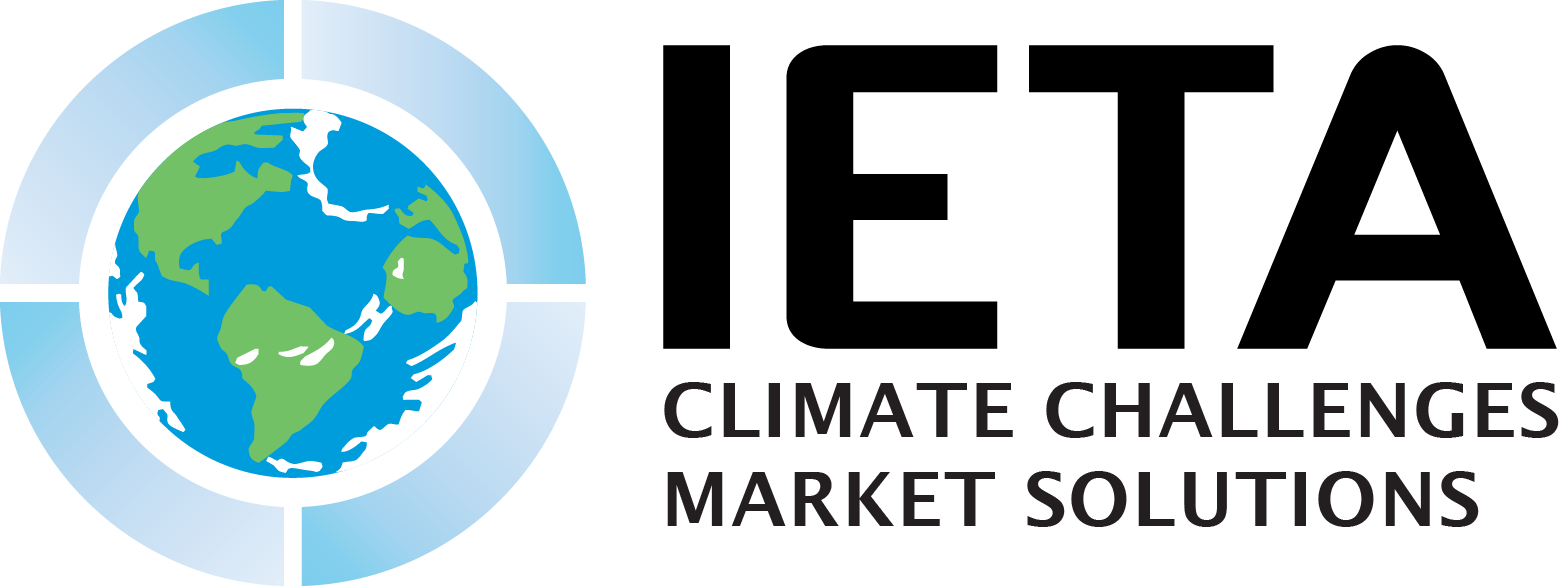 ×
×Industry Associations / Events / Engagement
The International Emissions Trading Association (IETA) is a global non-profit business organisation that plays a key advocacy role in establishing effective market-based trading systems for greenhouse gas (GHG) emissions and removals to promote market-based solutions for climate change.
PETRONAS became a member of IETA in June 2022. Through our participation in IETA’s working groups, taskforces and initiatives, PETRONAS is strengthening our internal capacity and building capability on carbon markets and carbon pricing instruments.
Find out more here.
 ×
×Industry Associations / Events / Engagement
The Methane Guiding Principles (MGP) was developed collaboratively by a coalition of industry, international institutions, non-governmental organisations (NGOs) and academia. It is a voluntary, international multi-stakeholder partnership between industry and non-industry organisations with a focus for actions along the natural gas value chain, from production to the final consumer.
In 2020, PETRONAS became a signatory member of Methane Guiding Principles (MGP). In 2022, PETRONAS publicly reported our progress in accordance with the five (5) MGP principles on our approachto effective methane management.
Find out more here.
 ×
×Industry Associations / Events / Engagement
An initiative that commits governments and oil companies to end routine flaring by 2030, aiming to support cooperation between all relevant stakeholders so that solutions to gas flaring can be found through appropriate regulation, application of technologies, and financial arrangements.
PETRONAS endorsed the global pledge of zero routine flaring by 2030, in November 2021, with the aim to avoid routine flaring in new oil field developments; and for existing field, to seek implementation of economically viable solutions to eliminate this legacy flaring as soon as possible, by 2030. PETRONAS contributes with gas flaring and venting data towards the compilation of the World Bank's annual global gas flaring report.
Find out more here.
 ×
×Industry Associations / Events / Engagement
The United Nations Environment Programme (UNEP)’s Oil & Gas Methane Partnership (OGMP2.0) is an industry-specific initiative, internationally recognized framework for effective methane emissions management. OGMP2.0 provides a mechanism for companies to address and report methane emissions systematically.
PETRONAS became a signatory member to the OGMP2.0 in November 2022. Efforts are taken to systematically enhance PETRONAS’ approach in accordance with the framework on methane emissions measurement, quantification, reporting, and implementation of our decarbonisation levers particularly zero routine flaring and venting, and energy efficiency.
Find out more here.
 ×
×Industry Associations / Events / Engagement
The Task Force on Climate-related Financial Disclosures (TCFD) sets out recommendations for climate-related disclosures and provides a framework for disclosures on potential long-term risks and opportunities associated with climate change.
PETRONAS has expressed public support for the recommendations of the Task Force on Climate-related Financial Disclosures (TCFD) to ensure greater transparency around how we approach climate risk. We are incorporating the TCFD framework into our disclosures from 2023 onwards.
Find out more here.
 ×
×Industry Associations / Events / Engagement
A principal CEO-led platform to drive anti-corruption globally, building on the pillars of public-private cooperation, responsible leadership and technological advances.
PETRONAS became a signatory of PACI in July 2021, joining 90 other signatories across different sectors worldwide. In doing so, we strengthen our zero tolerance on corruption in all its forms and join collective action initiatives to increase public trust in business, deliver fair markets and level the playing field by fighting corruption.
Find out more here.
 ×
×Industry Associations / Events / Engagement
A leading global intergovernmental agency supports countries in their energy transitions and provides data and analyses on technology, innovation, policy, finance, and investment.
PETRONAS joined the Alliance for Industry Decarbonisation in November 2022 with the aim to foster action for decarbonisation of industrial value chains and enhance understanding of renewables-based solutions and their adoption by industry.
Find out more here.
×Industry Associations / Events / Engagement
A series of regional roundtables to elevate conversation, shape practices, policies, and regulations in ASEAN on methane emissions with the aim to engage diverse stakeholders through dialogues on advancing strong performance and effective methane emissions management.
PETRONAS, in collaboration with ASEAN national oil companies, governmental agencies and international organisations, launched the ASEAN Energy Sector Methane Leadership programme to build the region’s capability and capacity in managing methane emissions. This collaboration aims to expedite methane emission reductions across the energy value chain in Southeast Asia.
Find out more here.
×Industry Associations / Events / Engagement
The COP28 Presidency launched the landmark Oil and Gas Decarbonization Charter (OGDC), a global industry charter dedicated to speeding up climate action and achieving high-scale impact across the oil and gas sectors.
- Investing in the energy system of the future including renewables, low-carbon fuels and negative emissions technologies.
- Increasing transparency, including enhancing measurement, monitoring, reporting and independent verification of greenhouse gas emissions and their performance and progress in reducing emissions.
- Increasing alignment with broader industry best practices to accelerate decarbonization of operations and aspire to implement current best practices by 2030 to collectively reduce emission intensity.
- Reducing energy poverty and providing secure and affordable energy to support the development of all economies.
Find out more here.
Our Approach to Sustainability Reporting and Publications
We view Environmental, Social and Governance (ESG) as an integral part of delivering long-term stakeholder value. We are guided by the following national and international guidance, frameworks and standards to ensure that our report is accurate, reliable and comprehensive:
- The International Integrated Reporting Council (IIRC)
Framework - Ipieca reporting guidance for the oil and gas industry
- American Petroleum Institute (API) Standards
- International Association of Oil & Gas Producers (IOGP) Standards
- Global Reporting Initiative (GRI) Standards
- World Economic Forum’s Stakeholder Capitalism Metrics
- Task Force on Climate-Related Financial Disclosures (TCFD)
PETRONAS will continue to improve data integrity through assurance and verification exercises to build trust among stakeholders, both internal and external. Click here to view our GHG verification statements.
Ensuring we remain committed to maintaining our standards in managing greenhouse gas (GHG) emissions, we continue strengthening our reporting practices to be aligned with internationally recognised principles, frameworks, and standards, including the Task Force on Climate-related Financial Disclosures (TCFD) framework recommendations. Since 2022, we also report through the CDP disclosure platform.
 ×
×Our integrated report is guided by the International Integrated Reporting Council (IIRC)
Framework since 2020. IR aims to provide a holistic view of an organization's strategy, governance, performance, and prospects by connecting financial and non-financial information in a concise and coherent manner. As of August 2022, the IFRS Foundation assumed responsibility for the Integrated Reporting Framework. For more information about the framework, please visit here.  ×
×Our Sustainability reporting was prepared in adherence to IPIECA disclosures since 2020. The Sustainability reporting guidance for the oil and gas industry provides direction on the content of a typical industry report by covering 21 sustainability issues and 43 indicator categories. These issues and indicators have been selected based on industry consensus, together with significant insights and suggestions from an independent panel of stakeholders with expertise in the sector and sustainability reporting. For more information, please visit here.
 ×
×The GRI Standards represent global best practice for reporting publicly on a range of economic, environmental and social impacts. Sustainability reporting based on the Standards provides information about an organization’s positive or negative contributions to sustainable development. For more information, please visit here.
 ×
×We adopt the Stakeholder Capitalism Metrics in our reporting in our effort to promote the further convergence of existing environmental, social and governance (ESG) frameworks and principles, as well as support the progress of a globally accepted solution for common ESG metrics. For more information, please visit here.
 ×
×The Financial Stability Board (FSB) created the TCFD to develop recommendations on the types of information that companies should disclose to support investors, lenders, and insurance underwriters in appropriately assessing and pricing a specific set of risks—risks related to climate change. The recommendations are structured around four thematic areas that represent core elements of how organizations operate: governance, strategy, risk management, and metrics and targets. At PETRONAS, we are progressing towards full adoption of the Recommendations of the Task Force on Climate-related Financial Disclosures (TCFD) by FY2024. For more information about TCFD, please visit here.
Adopting TCFD
We aspire to proactively strengthen transparency in reporting while shaping the national climate-related risk disclosure practice in Malaysia. We apply the framework recommendations put forward by the Task Force on Climate-related Financial Disclosures (TCFD) to our assessment of climate risk. By aligning our strategic assessment of risk with TCFD, we strive to effectively manage and capitalise on climate-related risks and opportunities and accelerate progress towards our path to net zero.
Read more here.
Governance
We recognise that climate change is a critical business issue, contributing to a set of risks and opportunities. We are taking more deliberate actions to elevate sustainability, especially climate-related discussions at the Board, to shape the long-term strategic direction of the company. The role of the Board in climate-related matters can be referred to in the Sustainability Statement section.
Strategy
We defined our Net Zero Carbon Emissions by 2050 Pathway to accelerate and advance groupwide actions and commitment. The Pathway — with its short-, medium-and long-term targets - will steer the group towards realising our climate goals. The Pathway is two-pronged, reducing operational greenhouse gas (GHG) emissions and increasing investments in business growth opportunities in the lower carbon economy.
Risk & Opportunities
We apply a group-wide approach to the management of risk through the establishment of the PETRONAS Risk Policy and complemented by the PETRONAS Resiliency Model, which the Enterprise Risk Management Framework is part of. These policies and frameworks provide an integrated and holistic view of the overall strategy towards effective risk management. We have adopted TCFD's categorisation of climate-related risks into two major categories which are transition risks and physical risks.
Metrics and Targets
PETRONAS has adopted the equity share approach to account for our emissions inventory and performance. We have revised our carbon emissions accounting method to adhere to international frameworks and sector specific guidance to give us a robust basis for Scope 1 and Scope 2, and a better understanding of Scope 3 greenhouse gas emissions.
Read more for details description on our adoption of TCFD in www.petronas.com/integrated-report-2022/
Carbon Disclosure Project (CDP)
PETRONAS has participated in the CDP Climate Change disclosure since 2022.
Read more on our submission below.
Methane Guiding Principle (MGP)
In 2020, PETRONAS became a signatory member of Methane Guiding Principles (MGP). In 2023, PETRONAS publicly reported our progress in accordance with the five MGP principles on our approach to effective methane management.
Note: Having achieved its objectives, the MGP initiative was retired in July 2025.
Oil & Gas Methane Partnership 2.0 (OGMP 2.0)
The United Nations Environment Programme (UNEP)’s Oil & Gas Methane Partnership (OGMP2.0) is an industry-specific initiative and internationally recognized framework for effective methane emissions management. OGMP2.0 provides a mechanism for companies to address and report methane emissions systematically.
Member companies report on methane emissions along five levels of reporting, increasing the accuracy of reporting with each level with the aim to achieve the Gold Standard – the highest reporting level under OGMP 2.0. Companies must achieve Level 4/5 reporting for operated assets within three years and for non-operated assets within five years. In 2023, PETRONAS achieved OGMP2.0 Gold Standard for its methane pathway.
PETRONAS became a signatory member to the OGMP2.0 in 2022. Efforts are being taken to systematically enhance PETRONAS’ approach in accordance with the framework on methane emissions measurement, quantification, reporting, and implementation of our decarbonisation levers particularly zero routine flaring and venting, and energy efficiency.
World Bank Zero Routine Flaring Initiative
PETRONAS has announced its endorsement of the World Bank’s Zero Routine Flaring by 2030 Initiative as part of its broader effort for greater transparency
around its action on climate change, in line with the Group’s aspiration to achieve Net Zero Carbon Emissions by 2050.The Zero Routine Flaring Initiative aims to end routine flaring of associated gas from oil production. Under this Initiative, PETRONAS pledges to avoid
routine flaring in new oil field developments and end routine flaring at existing oil production sites by 2030.By supporting the Zero Routine Flaring Initiative, PETRONAS joins a growing global coalition of governments, companies and institutions that demonstrate
strong environmental leadership and effective natural resource management by publicly reporting their flaring data on an annual basis.Read more here.
Know more about PETRONAS-
Connect With Us
Sign up for email updates and be the first to know of the latest developments from PETRONAS.
Subscribe Now
-
Licensing & Procurement In Malaysia
Information on licensing and registration for Malaysian-based vendors.
Read More
-
Career Opportunities
Let's go further together, with the right tools and mindsets. Because when empowered, anything is possible.
Read More


- Terms of Use
- Privacy Statement
- Cookies Settings

